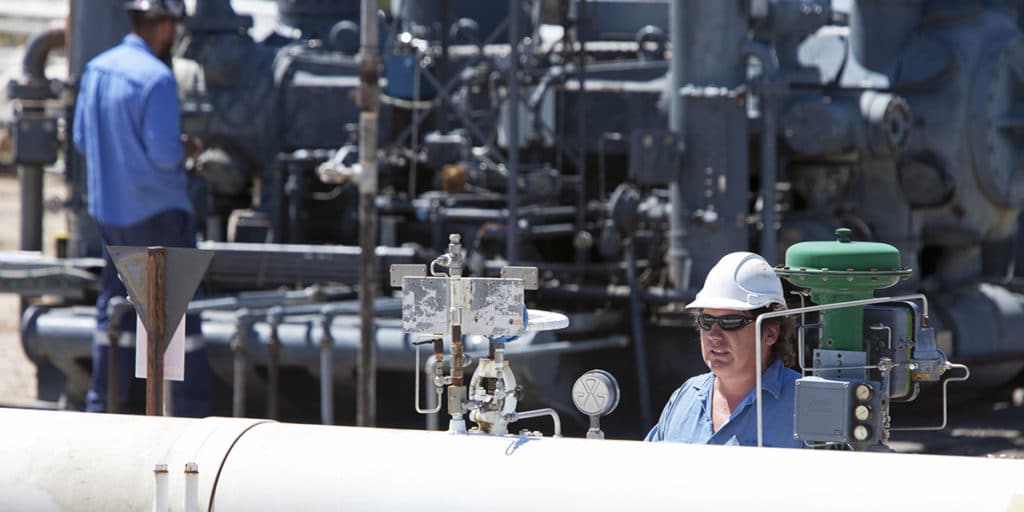NGER compliance
 WestSide Corporation Limited (ASX code: WCL) is a publicly listed Brisbane-based Coal Seam Gas (CSG) explorer and producer with certified reserves and a diversified portfolio of projects in Queensland.
WestSide Corporation Limited (ASX code: WCL) is a publicly listed Brisbane-based Coal Seam Gas (CSG) explorer and producer with certified reserves and a diversified portfolio of projects in Queensland.
The company is strategically well positioned to take advantage of the potential value of its resources from marketing opportunities to downstream industrial applications and access to Australia’s domestic gas market.
High intensity emissions

WestSide operates the Meridian SeamGas CSG gas fields 160km west of Gladstone in Queensland’s Bowen Basin in joint venture with Mitsui E&P Australia. The company holds a 51 percent interest with Mitsui E&P Australia holding the remaining 49 percent. WestSide also holds 50 percent joint venture interests with QGC in other CSG projects with exploration and appraisal programs currently underway at the Paranui, Tilbrook and Mount Saint Martin pilots in Queensland’s Bowen Basin (ATP 688P, ATP 769P).
The acquisition of ATP 974P and ATP 978P in Queensland’s Galilee Basin has also provided WestSide with a longer term growth focus in joint venture with Mitsui.
Challenges of compliance

Under the National Greenhouse and Energy Reporting (NGER) Act, reporting requires participation from multiple divisions of an organisation – these include everyone from contractors, production and operations managers to finance and sustainability teams. This means that designing and implementing an appropriate governance framework is crucial for the effective functioning of the overall NGER process.
As a first time reporter, WestSide’s need to focus on identifying critical roles and responsibilities was reinforced by Pangolin Associates.
The governance process needed to be supported by detailed documentation and the importance of appropriate technical information was also highlighted to WestSide.
The NGER Audit Determination Handbook is published by the Australian Government Department of Climate Change and Energy Efficiency (DCCEE) and clearly outlines the requirement for NGER reporters to prepare a ‘Basis of Preparation’ document that details how the organisation has interpreted and applied the requirements of NGER, including methodologies applied, assumptions and estimations used.
For the FY 2010/2011 and ongoing NGER reporting years, all organisations must estimate the statistical uncertainty of greenhouse gas (GHG) emissions in their NGER report. Estimating uncertainty introduces additional complexity into NGER reporting. NGER requires organisations to apply the definition of ‘operational control’ in order to determine their corporate boundary. This can be very challenging for organisations and significant judgements may be required especially where contractors, trusts and joint ventures (JVs) are involved.
WestSide’s numerous JVs meant ensuring consistency of interpretation across divisions and that proper documentation of decisions made in relation to its operational boundaries and NGER reporting obligations was kept.
NGER compliance solutions
Program:
- Identifying all GHG emission and energy sources for WestSide that need to be reported on under the NGER Act.
- Creation of a custom reporting tool for data collection and calculating NGER related inputs and outputs relative to facility and corporation thresholds.
- The development of a reporting methodology and framework systems document for WestSide’s mandatory compliance requirements of Scopes 1 and 2 GHG emissions and energy consumption and production.
Through its partnership with Pangolin Associates, WestSide now has a clear understanding of its NGER obligations and has the right reporting system tools in place to meet the technical challenges presented by the strong growth projections in coal seam natural gas production.
WestSide is confidently positioned to demonstrate its conformity to the reporting requirements of NGER by having a clear and auditable record of data sources and allocated staff resources responsible for collecting and processing the data, calculations and the methodologies which are applied to present this information for reporting purposes. Each data source is documented to describe, in detail, the ownership, data format and quality to fulfill the legislative requirements established in the NGER Measurement Determination.
Pangolin Associates handled liaison with the DCEEE and sought advice and guidance from the the Department regarding interpretational issues or complex technical requirements. Pangolin Associates made every effort to identify issues early in order to reduce any risks associated with WestSide’s NGER reporting obligations. Appropriate documentation for the company to maintain has been established, based on conversations with the Department. Furthermore, Pangolin Associates communicated with the peak industry body (APPEA) to ensure that consistent interpretations were applied.
Testimonial
As a result of our partnership with Pangolin Associates, WestSide clearly understands its National Greenhouse and Energy Reporting obligations and now has the appropriate reporting system tools in place to demonstrate conformity and compliance with those obligations.
Dr Julie Beeby, Chief Executive Officer of WestSide Corporation Limited.
Carbon price (carbon tax) modelling
In 2012 WestSide Corporation commissioned Pangolin Associates to model the impact of the Carbon Pricing Mechanism (CPM) via Pangolin’s Carbon Strategy and Risk Report. The report helped WestSide understand justifiable supply chain cost increases. It was also crucial in price negotiations with a major customer.
Pangolin’s Carbon Strategy and Risk Report:
- Calculations on financial data based on products and services procured over the course of a typical trading year.
- Detailed carbon tax risk exposure profile.
- Likely impact of the Carbon Pricing Mechanism over 4 years, starting from the first year of the fixed-price period (1 July, 2012).
- Quantifiable risks and the estimated impact on operating costs and your bottom line.
- Carbon tax risk management and cost and emissions mitigation strategies.
The Integrated Sustainability Analysis Research team at the University of Sydney developed the robust methodology.
